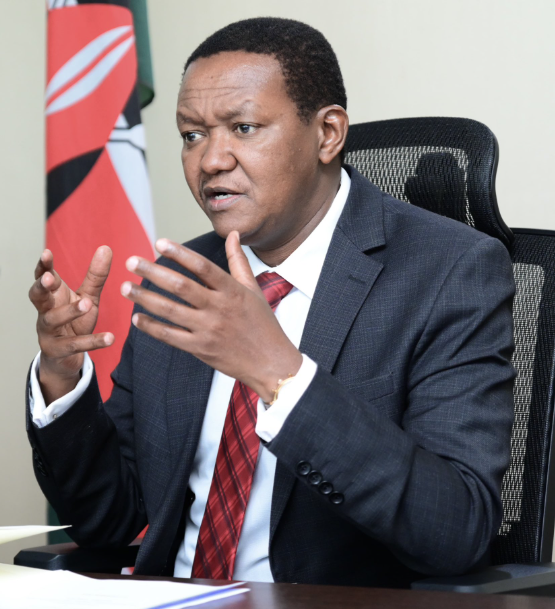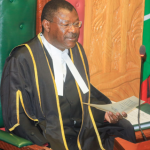The political landscape is heating up with the motion for the impeachment of Deputy President Geoffrey Rigathi Gachagua. Cabinet Secretary for Labour and Social Protection, Alfred Mutua, has openly supported the motion, accusing Gachagua of fostering tribalism and corrupt practices, though he did not specify the exact nature of these allegations.
Mutua’s endorsement aligns with Kibwezi West MP Mwengi Mutuse, who filed the impeachment motion. Speaker Moses Wetang’ula has confirmed that the motion meets constitutional thresholds, listing 11 charges against the Deputy President. The impeachment process is now set to move forward, with Mutuse presenting electronic evidence and documents to support his case, claiming that 291 MPs have backed the motion.
Gachagua, in response, has expressed readiness to defend himself against the charges. This situation echoes past political tensions within the Kenyan leadership, reminiscent of the strained relationship between former President Uhuru Kenyatta and William Ruto.
The High Court has declined to issue interim orders that would have halted the National Assembly from tabling and debating the impeachment motion against Deputy President Rigathi Gachagua. On Monday, September 30, 2024, Judge Bahati Mwamuye rejected a petition filed by former United Democratic Alliance (UDA) Secretary General Cleophas Malala, who sought to prevent the motion from proceeding.
In his ruling, Judge Mwamuye stated that the petition and accompanying summons aimed to stop the tabling, debate, and consideration of the impeachment motion. However, the court declined to issue any restraining orders, effectively allowing the parliamentary process to move forward. This ruling clears the way for the National Assembly to debate the motion, escalating the political battle surrounding Gachagua’s impeachment.



